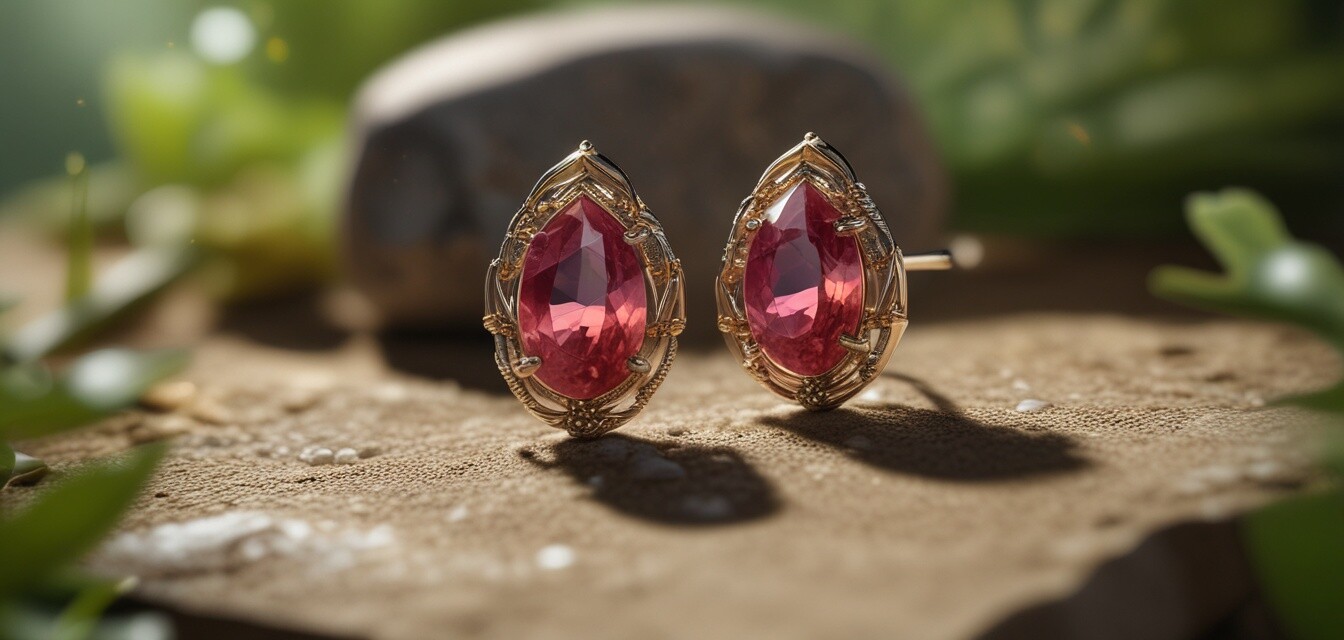
Eco-Friendly Changes in the Jewelry Retail Space
Key Takeaways
- Jewelry retailers are increasingly focusing on sustainability to appeal to eco-conscious consumers.
- Practices include ethical sourcing, eco-friendly packaging, and upcycled materials.
- Consumers demand transparency, making ethical certifications essential for retailers.
- Artisans play a crucial role in creating unique, sustainable jewelry pieces.
- Many retailers are implementing programs that support local communities and the environment.
As the world becomes more aware of environmental issues, the jewelry retail space is undergoing significant changes. Retailers are adopting eco-friendly practices not only to appeal to the growing number of eco-conscious consumers but also to contribute positively to the planet. This article discusses how retailers are promoting eco-friendliness and sustainability within their stores.
Ethical Sourcing: What Does It Mean?
Ethical sourcing refers to the procurement of materials in a way that considers the social and environmental impact. In the jewelry industry, this means obtaining gemstones and metals from sources that prioritize human rights and environmental protection.
Importance of Ethical Sourcing
- Supports fair labor practices for miners and artisans.
- Reduces environmental impact through responsible mining methods.
- Encourages the use of recycled or upcycled materials.
Sustainable Packaging Initiatives
Sustainable packaging is another key area where jewelry retailers are making changes. Many are now opting for biodegradable, recyclable, or reusable packaging materials. This shift helps to reduce waste and environmental harm.
Examples of Sustainable Packaging
| Packaging Type | Description |
|---|---|
| Biodegradable Boxes | Boxes made from materials that decompose naturally over time. |
| Recyclable Materials | Packaging made from recyclable paper or plastics. |
| Reusable Pouches | Pouches that can be used multiple times, encouraging less waste. |
Support for Artisans and Local Communities
In an effort to promote sustainability, many jewelers are working directly with local artisans. This collaboration not only supports local economies but also helps maintain traditional crafting methods that are often more sustainable than mass production techniques.
Benefits of Supporting Artisans
- Preserves cultural heritage and craftsmanship.
- Reduces the carbon footprint associated with transporting goods.
- Promotes transparency in sourcing and manufacturing.
The Role of Certifications in Ethical Jewelry
Certifications play a critical role in helping consumers identify truly ethical products. Jewelry retailers often seek certifications that validate their commitments to sustainable practices.
Common Certifications to Look For
| Certification | Description |
|---|---|
| Fair Trade Certified | Indicates that materials are sourced from farms and mines that meet fair labor standards. |
| Responsible Jewelry Council (RJC) | A certification for companies demonstrating a commitment to responsible sourcing and ethical practices. |
| Conflict-Free Certification | Assures consumers that gemstones and metals are sourced without funding conflict. |
Embracing Technology in Sustainable Practices
Technology is also playing a significant role in promoting sustainability in the jewelry industry. Innovative tools are assisting retailers in tracking the provenance of materials and ensuring transparent supply chains.
Tech Solutions Enhancing Sustainability
- Blockchain technology for verifying supply chains.
- 3D printing for reducing waste in production.
- Digital platforms for connecting consumers with ethical artisans.
Consumer Demand for Transparency
Today's consumers are not just passive buyers; they demand transparency and accountability from brands. Retailers who prioritize clarity in their sourcing and production processes are more likely to resonate with this growing demographic.
How Retailers Are Responding
- Providing detailed sourcing information on product tags.
- Offering workshops and educational materials on sustainable practices.
- Highlighting eco-friendly credentials in marketing materials.
Conclusion
As the jewelry industry adapts to change, it’s evident that eco-friendliness and sustainability are not just trends; they are necessities. Retailers embracing these practices not only benefit the planet but also cater to a conscious and growing consumer base. By choosing ethical and sustainable products, consumers can support both artisans and the broader efforts toward sustainability in the jewelry space.
Pros
- Supports sustainable and ethical practices
- Appeals to a growing base of eco-conscious consumers
- Balances craftsmanship with environmental concerns
Cons
- Potentially higher costs for sustainable products
- Need for continuous transparency and verification
Tips for Choosing Eco-Friendly Jewelry
- Research the brand’s sourcing practices.
- Look for certifications that indicate ethical production.
- Consider purchasing from local artisans.
- Opt for brands that prioritize sustainable packaging.
- Stay informed about the brand’s commitment to sustainability through their communications.